Positive Grid's Spark Mini is a practice amp titan – but here are 5 smart amp alternatives we love with Black Friday discounts
Go outside of the practice amp box with these tech-equipped guitar amps and save money this Black Friday
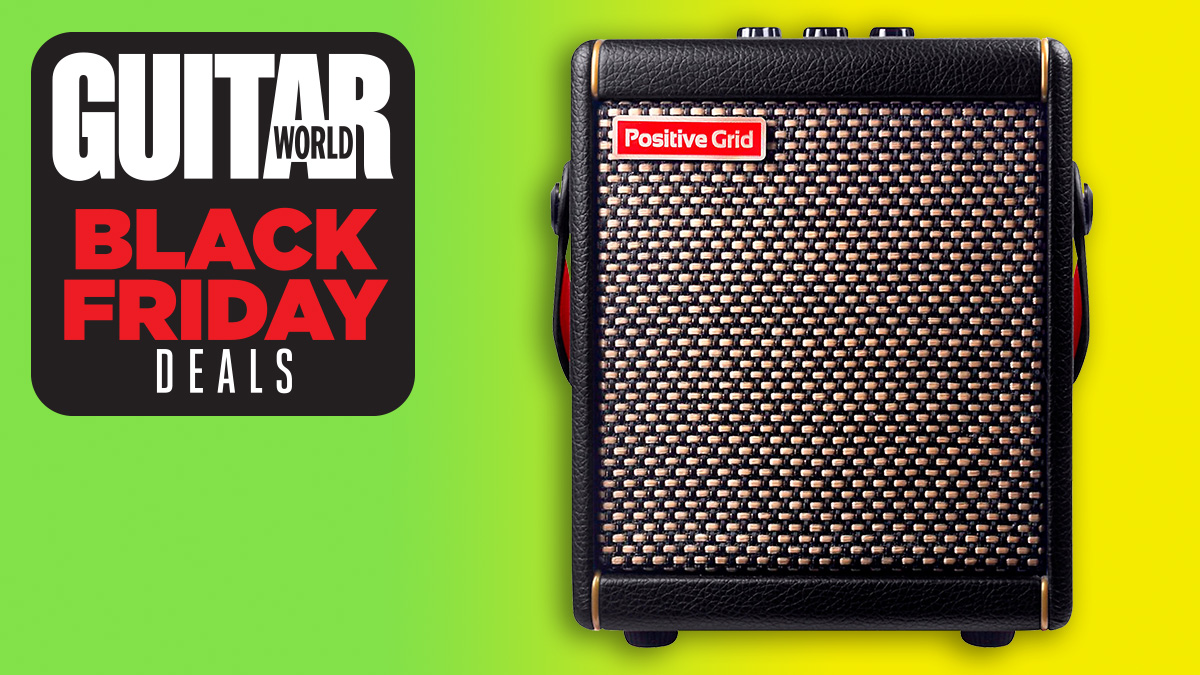
Not all that long ago, guitar practice amps were just that – small, basic, standalone boxes with one or two channels, and a rudimentary reverb on-board – functional, but limited. However, recent years have ushered in a new era of ‘smart’ amps designed for home use featuring contemporary styling, expanded tonal options and comprehensive connectivity.
Leading the charge is arguably the Positive Grid Spark Mini: a small-format, portable practice amp packing in a lot of features including smartphone integration, Bluetooth, and handy jamming tools such as its Smart Jam (which analyses your playing to create a custom jam track) and Auto Chords (which can listen to a piece of music and figure out a chord chart for you). You can read our full Positive Grid Spark Mini review here.
While the Spark Mini wins in the popularity stakes, there are plenty of other contenders out there. We’ve handpicked out favourites here. And even better, they’re all currently discounted for Black Friday! Of course, if you like the sound of our review, the Spark Mini is also on sale with $40 for Black Friday.
Today’s best Black Friday deals
Check out the latest offers on our pick of Spark Mini alternatives:
- Yamaha THR10II:
Was $329.99, now $309.99 at Amazon - NUX Mighty Air: Cable/picks/headphones bundle, $199 at Amazon
- Blackstar ID:Core III 10:
Was $149.99, now $129.99 at Sweetwater - Boss Dual Cube LX:
Was $299.99, now $229.99 at Guitar Center - Positive Grid Spark Go:
Was $129, now $99 at Positive Grid
You can view even more of our hand-picked Black Friday guitar deals here.
5 best Positive Grid Spark Mini alternatives
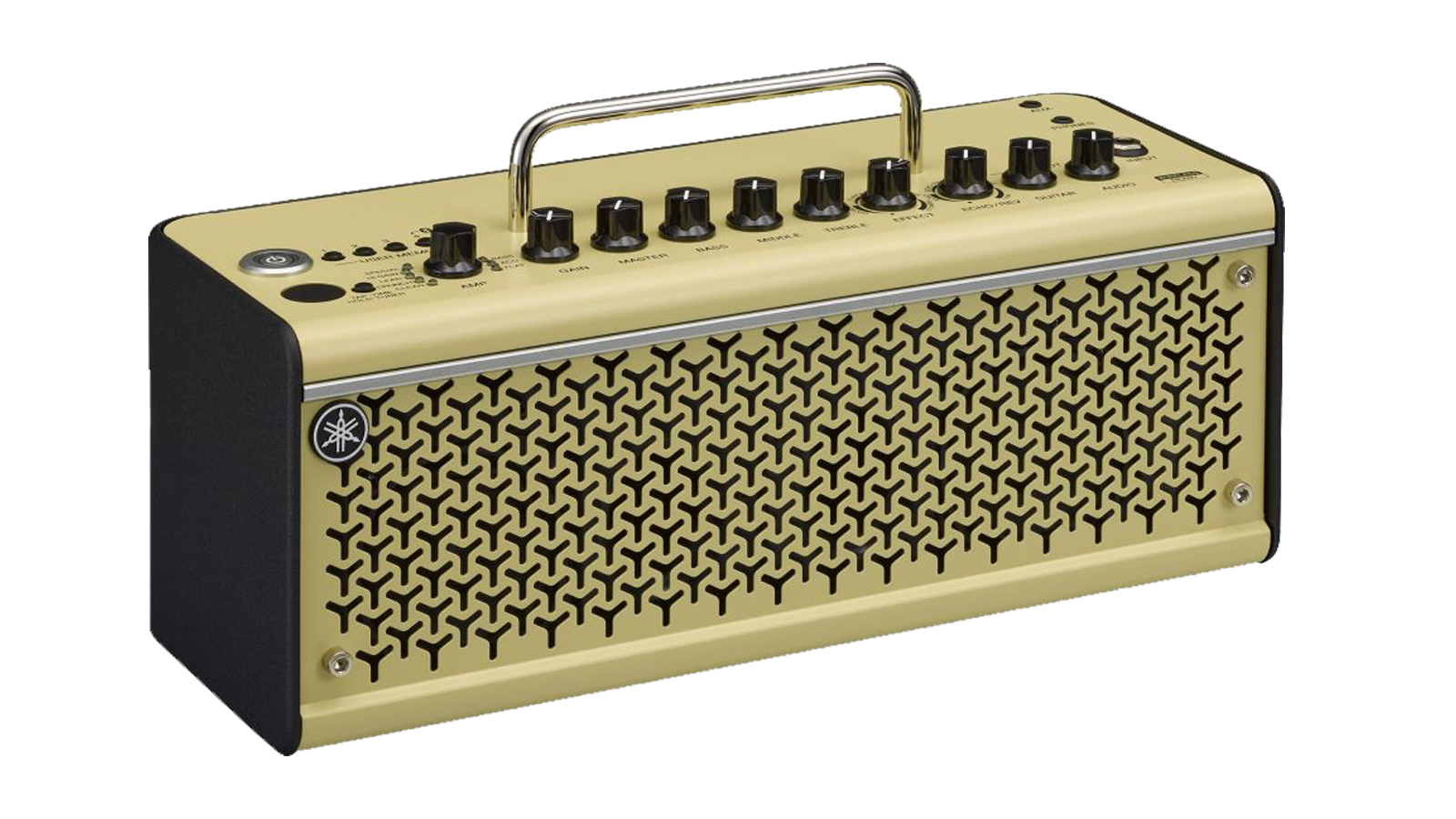
1. Yamaha THR10II
Our expert review:
Specifications
Reasons to buy
Reasons to avoid
With its THR series, Yamaha coined the ‘third amp’ phrase. That is, a dedicated amp to use at home, separate from your club-size combo or trouser-flapping tube stack. The second generation, THRII continues this, while also checking the visual boxes, with its non-offensive, stick-it-on-the-shelf looks and clean control layout. We get physical sound editing via five selectable amp models, channel controls for gain, EQ and volume, plus a pair of control knobs for selecting effects and reverb, and master controls for the guitar/audio outputs.
Bluetooth comes built-in, giving you a gateway to Yamaha’s THR Remote editor app for iOS and Android and iOS users can also download the excellent Yamaha Rec’n’Share app, which integrates your device’s camera for quick and easy creation of video clips.
Get The Pick Newsletter
All the latest guitar news, interviews, lessons, reviews, deals and more, direct to your inbox!
Yamaha happens to own Cubase, and it’s bundled Cubase AI and Cubasis LE. So combined with the USB connectivity you’ll be able to record pro-sounding guitar tracks straight out of the box.
The THR has more than earned its reputation as a great-sounding amp since it first launched, and there’s plenty of additional smart features to get excited about here. If you’re happy to spend a bit more, check out the THRII 10W, which has a built-in receiver for a Line 6 Relay wireless transmitter (sold separately).
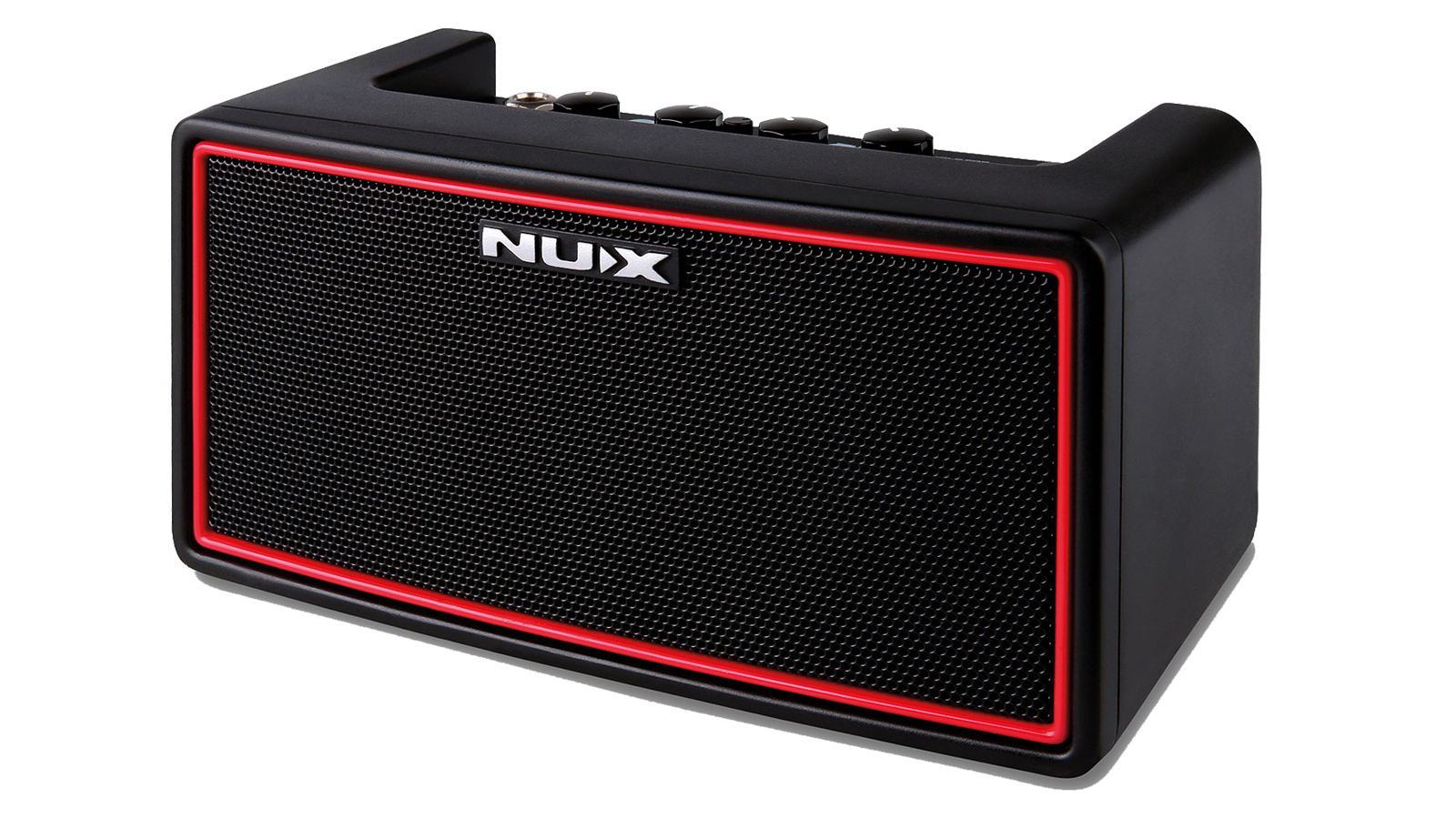
2. NUX Mighty Air
Our expert review:
Specifications
Reasons to buy
Reasons to avoid
NUX’s stock-in-trade is providing a killer set of features at a low price point, and the Mighty Air does exactly that. Come at it with a spec list and the Mighty Air stands tall: Bluetooth? Yes. A wireless input for your guitar? Absolutely! App control? That’s a yes too.
There’s plenty of control for using the amp in standalone mode, with three selectable channels, gain, volume, tone and delay/reverb knobs, plus you can start, stop and change rhythms from the internal drum machine (yep, it has one of those too).
Linking it up to the app is where the fun really lies though. Here, you get access to the full list of features that aren’t immediately visible from the Mighty Air’s control panel (or its marketing or manual). There are 13 amp models based on classics from Marshall, Mesa/Boogie, Fender, Diezel and more. In addition to this, it’s packing 20 multi-fx modes, four delay types and four reverbs along with 19 speaker impulse responses.
Delve a little deeper and you’ll uncover a metronome, jam tracks, and more, and it’s all really simple to operate with a clear presentation.
Finally, it’s worth noting that the Mighty Air can also use its USB socket as an audio interface (rather than simply for charging), which makes this a stone-cold bargain. The presentation might be slightly lost, but the Mighty Air lives up to its name and sounds great, especially for the money.
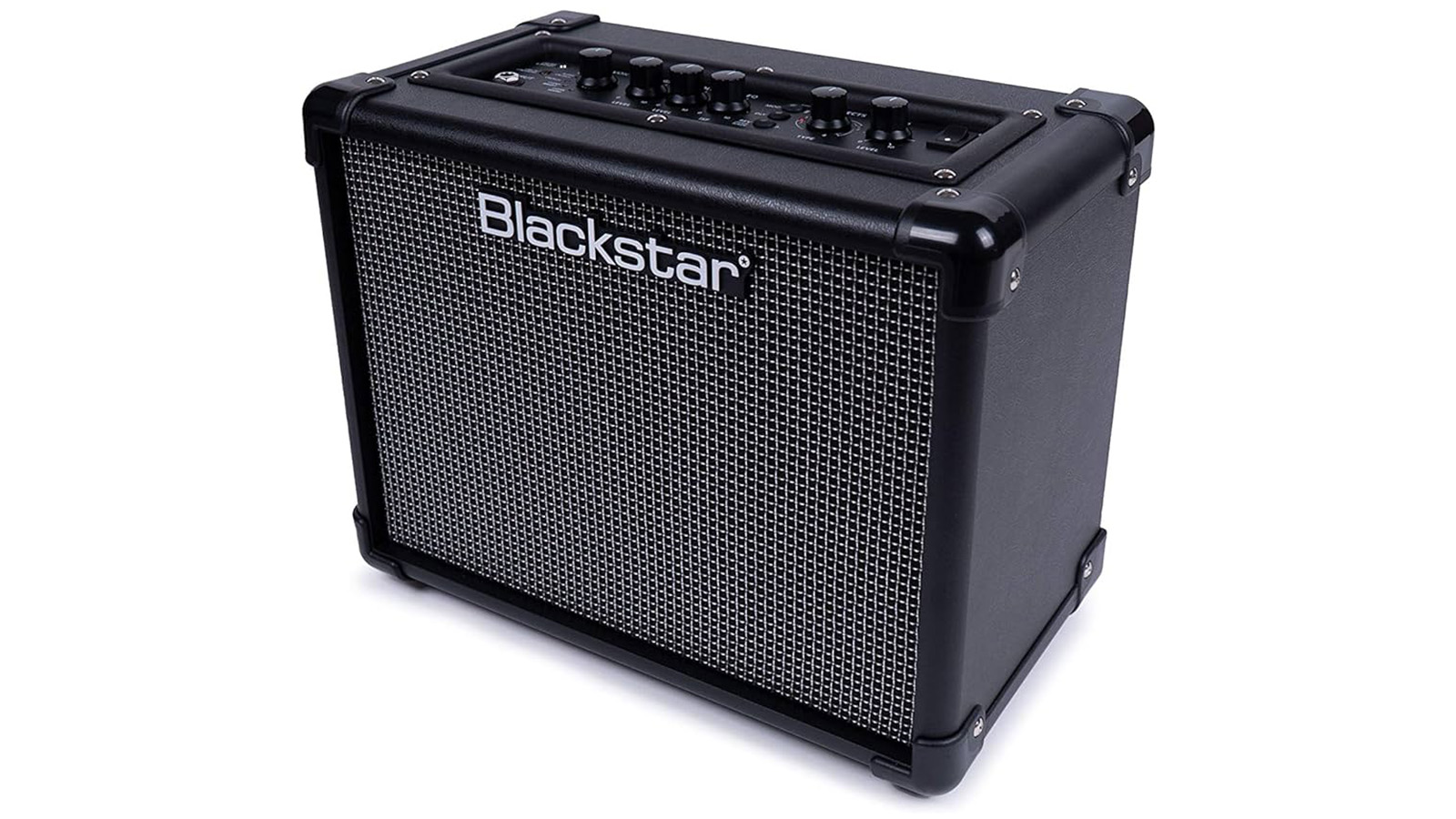
3. Blackstar ID:Core III 10
Our expert review:
Specifications
Reasons to buy
Reasons to avoid
Blackstar recently upgraded its ID:Core series to its third generation, but in case you’re not already familiar, here’s what you need to know. ID:Core is Blackstar’s range of digital amps, as such, they’re loaded with all kinds of useful features including six preamp voices ranging from clean to heavy overdrive/distortion, and thanks to Blackstar’s patented ISF control, you can dial the amp’s tonality from US to UK flavours, and anywhere in between. There are effects, too, in the form of four modulation effect types, four delays and four reverbs.
There’s no Bluetooth (look at the Blackstar B.E.A.M. for that), nor is there mobile app integration, but things get smart when you start looking at the ID:Core’s other features. First up is the Architect software, which runs on a Mac and PC. This gives you deeper editing over your presets, with everything laid out clearly, and Architect also includes Blackstar’s CabRig Lite, which gives you control over virtual speaker cabs, mics and virtual room environments.
One of our favourite things about ID:Core though, is the immersive Super Wide Stereo sound, which really needs to be experienced to fully appreciate. ID:Core 10 also comes with a USB audio interface built-in, and Blackstar has added a direct-to-phone audio socket, so you can incorporate all of your tones into phone-captured videos with a simple cable.

4. Boss Dual Cube LX
Specifications
Reasons to buy
Reasons to avoid
Boss’ Cube range of amps have been a common fixture on ‘must-try’ practice amps for decades. The Dual Cube LX brings the Cube format to your desktop with a range of features aimed at making practising anywhere more convenient. First, it’s loaded with Boss amp and effects models – including an on-board looper (you’ll need a footswitch to control it, though). There’s also plenty of control to hand, with selectors for amp and effects models, gain, volume and three-band EQ controls and more, plus it’s portable, and capable of running off batteries too (although this does require 8xAA batteries, so rechargeables are advisable).
But what of its smart capabilities? Well, while there’s a USB audio interface which also enables editing via a desktop app, the Dual Cube is best described as ‘smart ready’. That’s because its Bluetooth is provided by the Boss BT-Dual Audio/MIDI Bluetooth Adaptor – an additional purchase. Once you attach the dongle, you’ll be able to hook the amp up to your smartphone for control via the Dual Cube LX Editor app for iOS or Android. Here you can wirelessly delve deeper into the Dual Cube LX’s features when you’re away from a computer. It’s a great mid-point between the Spark Mini’s app reliance and the hands-on control of a traditional amp.
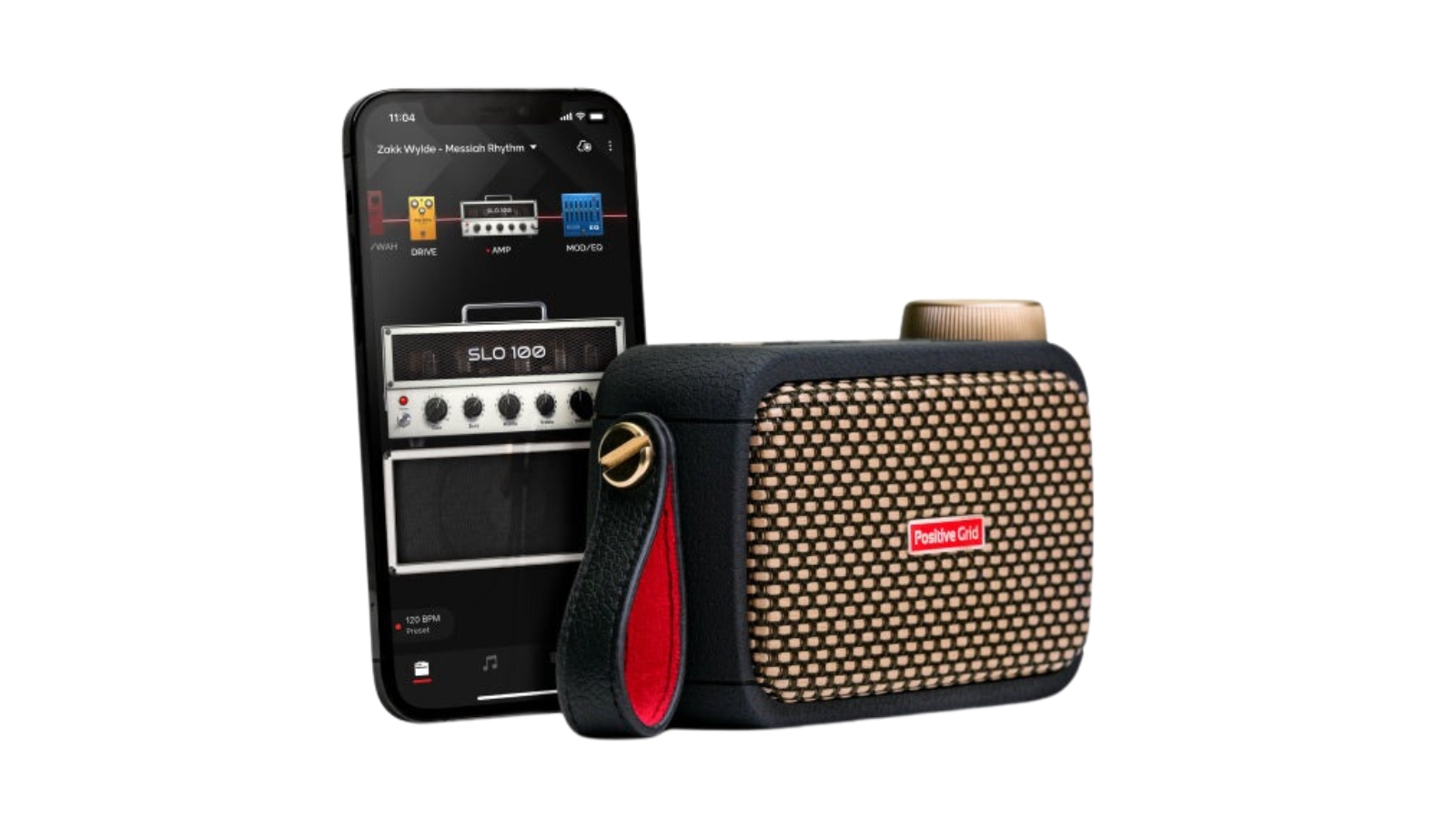
Specifications
Reasons to buy
Reasons to avoid
If you’re looking for Positive Grid’s stellar feature set in a more compact, portable and convenient format, look no further than the Spark GO. This is the most recent addition to the PG family, and as with the Spark and Spark MINI, it shares the Spark app and software functionality. So, you get access to the same 33 amp models, 48 effects, and thousands of presets as with the bigger models. Likewise, the Spark GO also offers the Spark family’s AI-powered Smart Jam and Auto Chord features, alongside in-app video recording and more. It sounds too good to be true, but there is no catch.
That is, unless, you aren’t a fan of integrating your phone entirely. That’s because the Spark GO strips away all but the most essential controls in favour of its small dimensions. You can store four presets to the GO for recall via the preset button when the app isn’t connected (just as with the Spark Mini), and PG has provided a volume control for your guitar signal, volume buttons for your incoming Bluetooth signal and a headphone jack. On the side there’s a power/pairing button, plus a USB C socket for hooking up to a computer as well as charging the internal, rechargeable battery.
The Spark GO represents a ridiculously powerful feature set, with tones to match at a comparative bargain price.
What’s so smart about smart amps?
As well as the tonal options we’ve come to expect from a regular practice amp (multiple amp models, effects and presets), a key component of a ‘smart’ amp is its ability to expand beyond the static features you’d usually get on a traditional practice amp. This is achieved by connectivity, and under-the-hood features for a one-stop practice, jamming and recording solution.
Thanks to mobile and desktop app integration, smart amps can be equipped with a utilitarian hardware control set, with further editing features (additional controls, access to thousands of presets and generally a more friendly, visual presentation) ‘unlocked’ by connecting to a dedicated app. In turn, allowing the app to take some of the strain allows for smaller form factors, and often a reduced hardware cost.
The smart definition continues by providing functions such as Bluetooth audio (for convenient streaming of your favourite songs), and a USB audio interface (for hooking up to a computer for DAW-based recording).
Now, taking the amp away from being a standalone box in the corner of your room and hooking it up to a phone or tablet provides additional possibilities too. That phone you carry around with you is loaded with cutting-edge technology. It can be a camera, an internet connection, and of course, your portal to social media – all of which would never be viable to add to an affordable practice amp. Smart amps exploit this tech with software functionality allowing you to easily use your device to capture your guitar playing – complete with your full guitar tone – and upload it online. You’ve heard of The Internet of Things, welcome to The Internet of Strings.
Shop more Black Friday sales
- Amazon: Shop all BF instrument deals
- Fender Play: 50% off a one-year sub
- Fender store: Up to 50% off Black Friday deals
- Guitar Center: Epic 40% off Black Friday savings
- IK Multimedia: 56% off Total Studio 4 Max
- Musician's Friend: 40% off Holiday Sale
- Positive Grid: 70% off Spark, 60% off BIAS
- Reverb: Score an impressive up to 82% off
- Sweetwater: Massive up to 75% off sale
- Waves: Get 3 plugins for just $49.99

Stuart has been working for guitar publications since 2008, beginning his career as Reviews Editor for Total Guitar before becoming Editor for six years. During this time, he and the team brought the magazine into the modern age with digital editions, a Youtube channel and the Apple chart-bothering Total Guitar Podcast. Stuart has also served as a freelance writer for Guitar World, Guitarist and MusicRadar reviewing hundreds of products spanning everything from acoustic guitars to valve amps, modelers and plugins. When not spouting his opinions on the best new gear, Stuart has been reminded on many occasions that the 'never meet your heroes' rule is entirely wrong, clocking-up interviews with the likes of Eddie Van Halen, Foo Fighters, Green Day and many, many more. If he's not playing the guitar, you'll likely find Stuart behind the kit playing Valerie to newlyweds.









